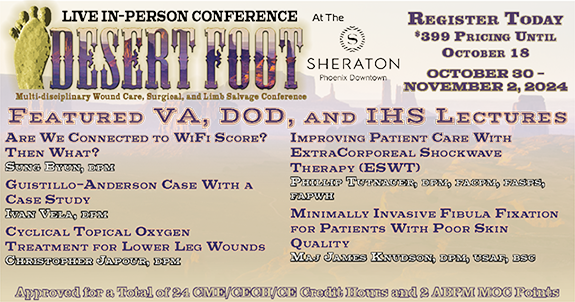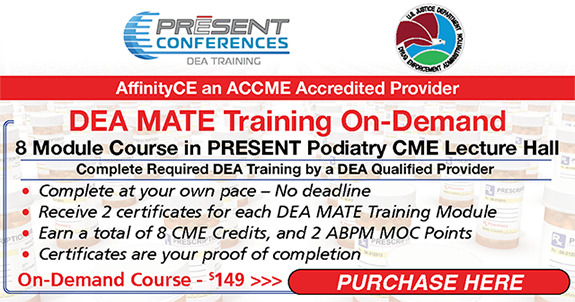
Sole Purpose 28
Negative Feedback
Negative Feedback

This week, I'm once again laying bare my flaws. I can be incredibly self-critical and really struggle with handling negative feedback. To be more specific, when I receive feedback, I will obsess over the negative and seldom remember the positive comments. My mind has a GPS set to zero in on anything negative.
This bad habit extends to my time in the clinic and hospital. During every rotation as a student, I would ask for feedback on how to improve. I'd fixate on any negative comments and just skim over the positive ones because, heaven forbid, I can’t be anything less than 100% perfect all the time (yes, I'm being theatrical, but bear with me). In my somewhat delusional brain, I convince myself that the positive feedback is a lie, and the negative feedback is the cold, hard truth. See Sole Purpose 11 – Imposter Syndrome and Starting Medical School.
Realizing this is one of my flaws and wanting to tackle it before residency begins, I did some research. Turns out, negativity bias is deeply ingrained in medicine itself, so I'm not alone in feeling this way. Today, I want to talk about negativity bias and how to overcome it.
So What Is Negativity Bias?
Negativity bias is the tendency to focus more on negative information than positive information.1-3 This tendency is not inherently bad; it stems from survival instincts and evolution.1 By remembering negative experiences, our ancestors learned to avoid dangerous situations. For example, if someone remembered that certain berries made them ill, they could avoid those berries in the future, thereby preventing further harm.
This natural inclination to prioritize negative information has helped humans learn and adapt over time. However, in modern contexts, this bias can manifest in various unhelpful ways.
Examples of negativity bias include1
- Thinking about insults more often than positive comments (I am SO guilty of this!).
- Responding more emotionally and physically to adverse stimuli than to positive ones (Okay, disclaimer: I am a natural crier but have never cried at the hospital. However, I am more likely to cry from a negative situation than I am to jump for joy over a positive one).
- Dwelling on unpleasant circumstances, events, or memories more than positive ones (I have never forgotten being screamed at in the OR, but I seldom remember all the kind things said to me).
- Focusing our attention more quickly on the negative than the positive (a patient will hear MUCH faster about gas on an X-ray than they will about having a perfectly normal X-ray).
Research shows that it takes five small positive acts to counterbalance one negative act.4 While I've been incredibly blessed with some AMAZING mentors who encourage me, push me to be my best, and help me believe I'm growing into the doctor and surgeon I've always wanted to be, it’s rare in medicine to receive five pieces of positive feedback for every negative one.

counterbalance one negative act

That said, research also shows that negative feedback leads to more rapid learning than positive feedback. At the end of the day, I'd personally rather receive negative feedback and learn as much as possible to help patients and be the best I can be, rather than just protecting my feelings (but shhh, don’t tell my therapist best friend).

learning than positive feedback

What Does This Mean in Medicine?
Medicine is hardwired for us to remember the negative. Additionally, negativity bias is most prominent in rapidly changing, highly competitive environments (cough med school).1-3 In medical school, we are trained to be thoroughly prepared and to rule out the worst-case scenarios first. The idea that you should never get a PIMP question wrong twice enforces the importance of remembering negative experiences.
Doctors and the culture of medicine encourage a “once bitten, twice shy” attitude, further reinforced by the pressures from insurance companies and malpractice lawsuits, which can lead doctors to assume the negative and over-order lab tests and imaging to rule out low-probability conditions.2 There is a benefit to this: negativity bias makes people in medicine better at anticipating the negative, helping us catch difficult but urgent and emergent diagnoses.


So What Can We Do?
Not all aspects of negativity bias are bad. As I mentioned before, it can help us identify and rule out big, scary, life-threatening issues for patients. However, there's no need for negativity bias when it comes to evaluating our own performance and self-worth. Below are some examples from psychologist Catherine Moore on how to overcome negativity bias in a healthy manner, along with how I have applied them in my own life.3
Challenging the Negative Self-Talk and Self-Awareness
Recognize the way you speak to yourself, especially after a negative experience. I know for me as a former athlete, I almost always critique that I am not working hard enough and need to be more disciplined and determined. It is simply not true and sounds comical now that I have written it on the page. How can you replace those thoughts with positive ones?
For me I make a list of all the things I did to prepare. I know I work hard and seldom show up to anything underprepared. Look at your behaviors and patterns. Do you automatically get defensive, beat yourself up, or overcorrect your behavior?
As I mentioned in my Imposter Syndrome Article , I have a picture of a much younger Savannah around the age of 4 or 5 posing with a huge smile on my bathroom mirror to remind me that whatever I say to myself, I am also saying to the sweet smiling younger me.
Mindfulness
We all have been told at least once to take a deep breath when upset. But research shows that mindfulness activities like deep breathing, yoga, or simply stopping and increasing awareness, really work. I am a huge advocate for a deep calming breath before entering the OR and using scrubbing as a minute to calm your mind.


Cognitive Restructuring
As I've embarrassingly admitted, I have a knack for catastrophizing and spiraling out. A tiny nugget of negative feedback can lead me to convince myself that I'm horrible, incapable, and destined to be a TERRIBLE SURGEON (so dramatic, I know). But cognitive restructuring is a great tool that helps reframe situations to see a more balanced perspective. Life isn’t black and white.
When I assess my performance after surgery, I acknowledge my flaws and identify areas where I made mistakes and could improve. I don’t deceive myself, but I also recognize where I've grown and what I did well. Even if I didn’t receive positive feedback, I actively seek it out for myself. This approach extends to my personal life too. At the end of each year, I create a timeline detailing the significant events: the highs like match day, graduating from medical school, celebrating weddings, running my first marathon, and cherished moments with loved ones.
Of course, the year also had its lows, including the challenges of externships and the illnesses and hospitalization of loved ones. But by writing about the good, the bad, and the ugly, I can reframe the bad to see that it wasn’t as bad as I thought, and that the good had some less good parts as well. I can find balance. It helps me appreciate how I handled difficult times, express gratitude for the positives, and reflect on the lessons learned from both.


Savor the Positive Moments
I'm a firm believer in maintaining a daily or nightly grateful list and setting intentions for the day. I cherish taking moments to reflect on the little joys each day brings. During times when it's challenging to believe in myself and recall my strengths, I keep one of the most meaningful clinical evaluations I received from a cherished mentor saved on my computer desktop. I revisit it to ground myself, gain perspective, and receive a much-needed boost of confidence that someone I trust and admire sees greatness in me.
In conclusion, recognizing this bias in myself, particularly as a self-critical and overachieving individual, has been both challenging and enlightening. The tendency to fixate on negative feedback while dismissing positive comments is deeply ingrained, driven by evolutionary survival mechanisms, and deeply reinforced by the high-pressure environment of medical training.
However, understanding negativity bias offers a pathway to overcoming its detrimental effects. By acknowledging our imperfections and actively working towards a healthier mindset, we can reframe how we perceive feedback. These strategies help create a balanced view of our abilities and achievements, fostering resilience and a more positive self-image. Here's to continuous learning, self-improvement, and the courage to see ourselves in a true, balanced light!

- Estroff Marano, Hara. “Our Brain’s Negative Bias.” Psychology Today. www.psychologytoday.com/us/articles/200306/our-brains-negative-bias. Accessed 10 June 2024.
Follow this link - Haizlip J, May N, Schorling J, Williams A, Plews-Ogan M. Perspective: the negativity bias, medical education, and the culture of academic medicine. Acad Med. 2012 Sep;87(9):1205-1209.
Follow this link - Moore, Catherine. “What Is the Negativity Bias and How Can It Be Overcome?” PositivePsychology.Com. 12 Mar 2024. positivepsychology.com/3-steps-negativity-bias/#overcome.
Follow this link - Quirk, Michelle. “Receiving Negative Feedback.” Psychology Today. Sussex Publishers. www.psychologytoday.com/us/blog/cultivating-curiosity/202208/receiving-negative-feedback. Accessed 13 June 2024.
Follow this link






























Comments
There are 0 comments for this article